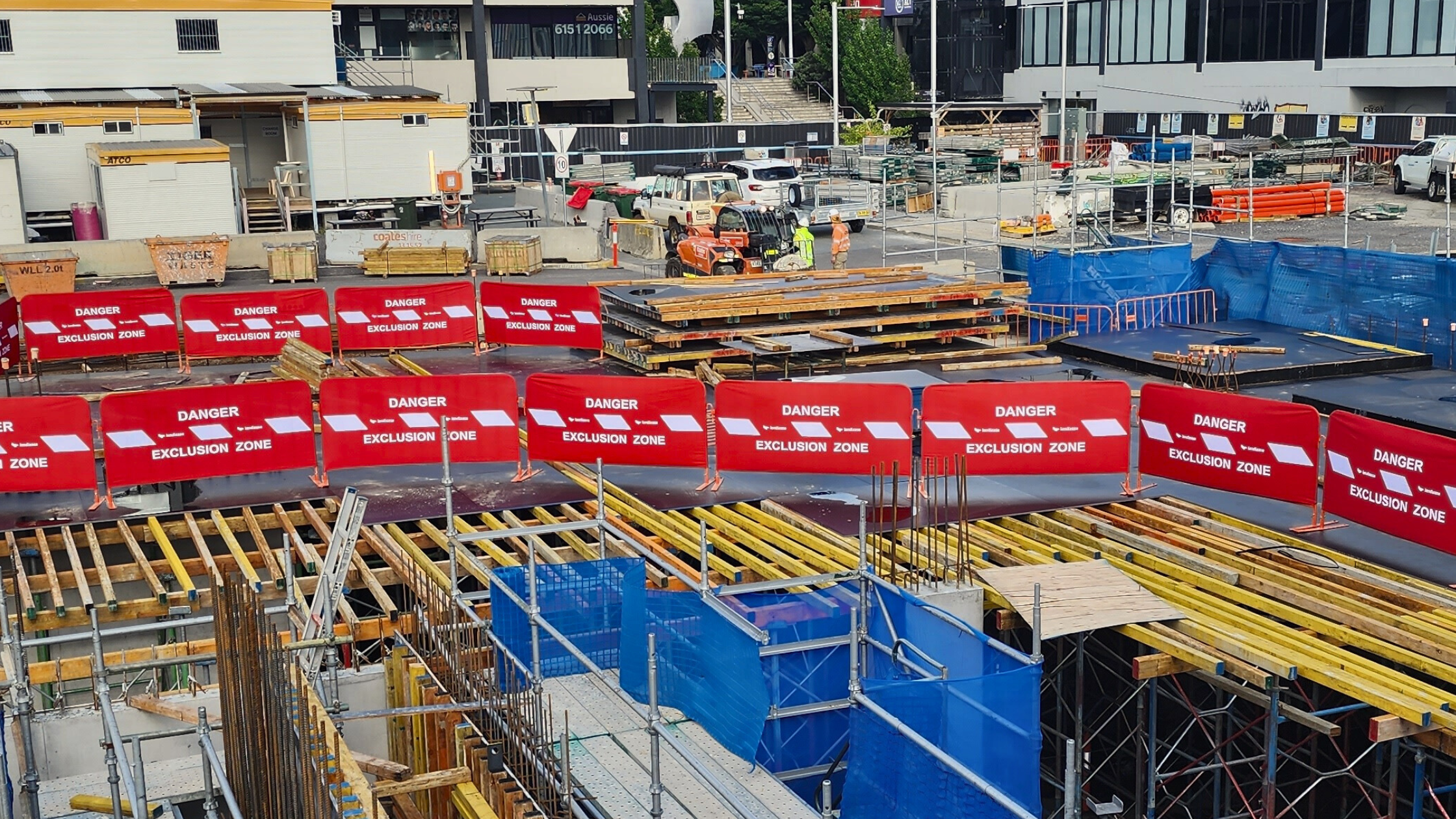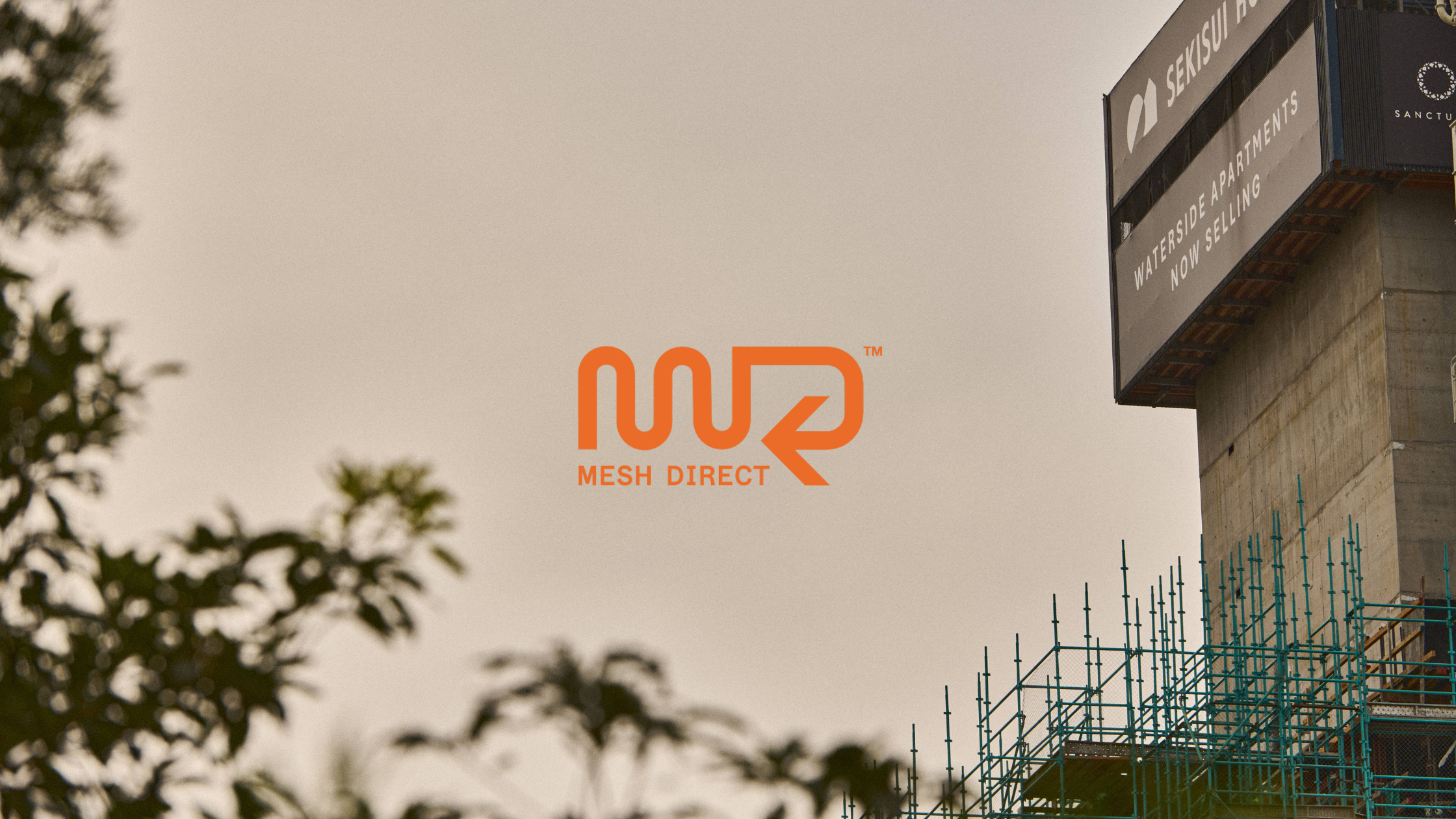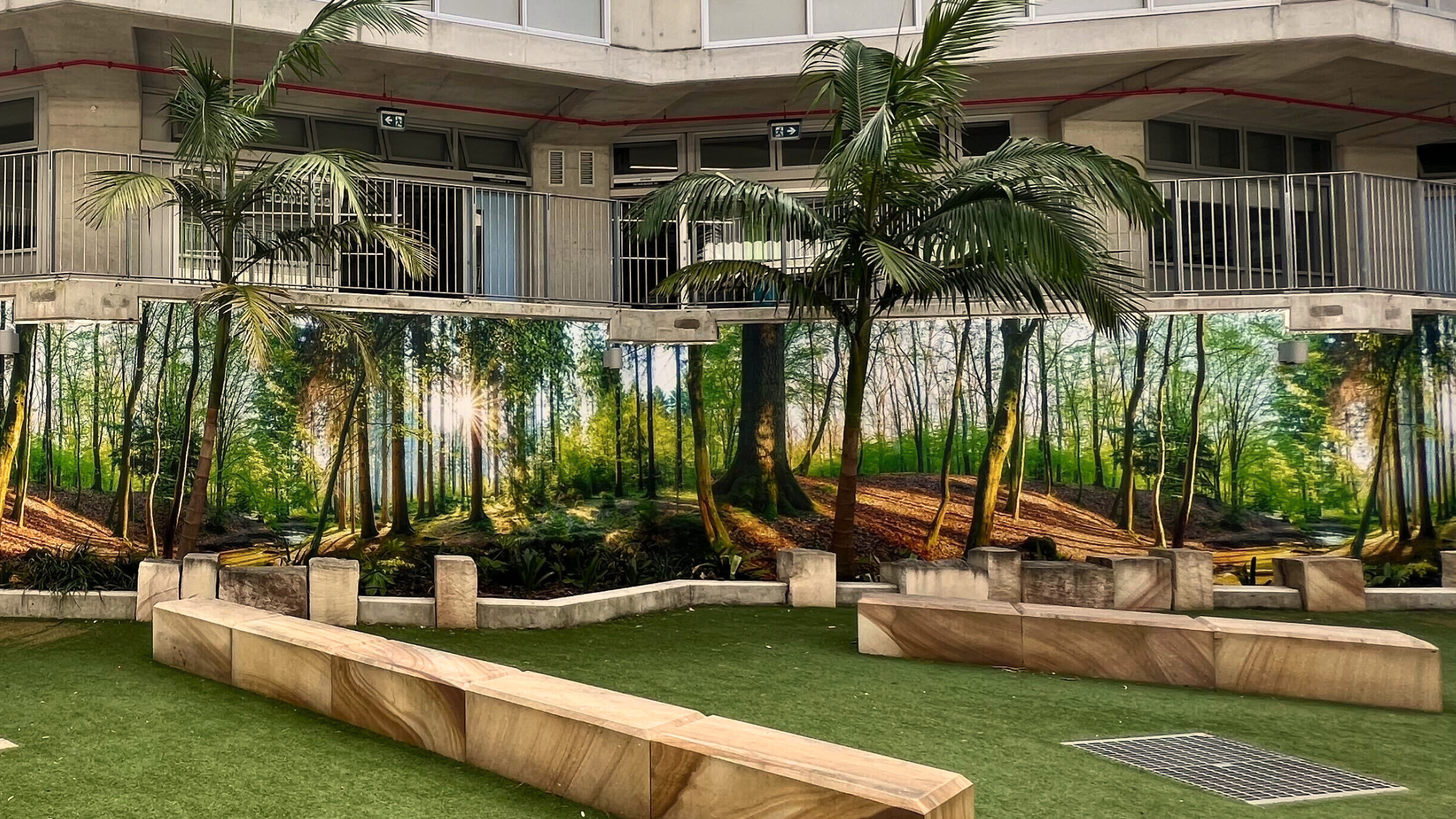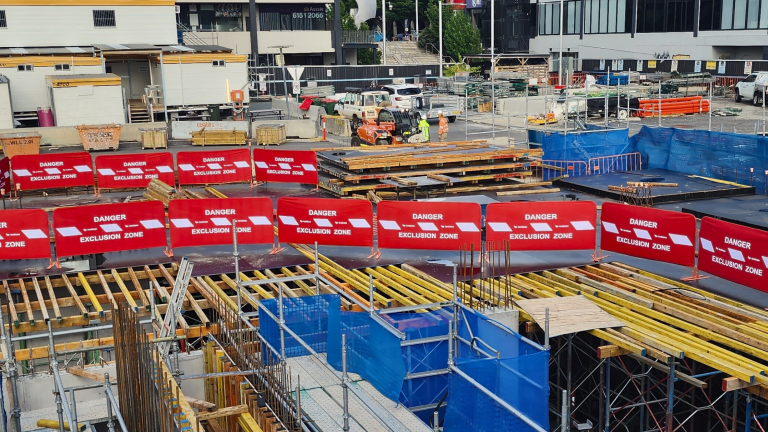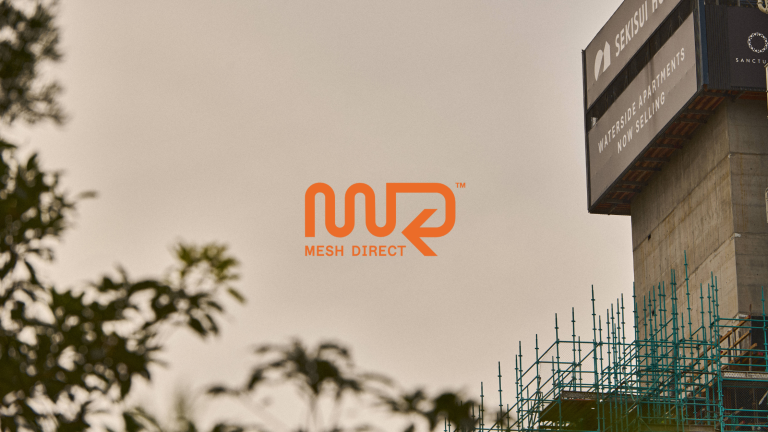Here at Mesh Direct we’ve been doing a lot of work behind the scenes, creating more sustainable signage solutions for our clients. In an age where advertising is everchanging and messages are often fleeting, we know and appreciate the importance of signage that can be disposed of responsibly or better yet, recycled entirely. The signage industry is notoriously harsh on the environment but we’re making big changes to ensure our own footprint is one that we’re proud to make and will pave the way for businesses to come.
As part of our mission to be carbon neutral, Mesh Direct takes responsibility for educating and guiding our customers when it comes to their sustainable signage options. One of the most commonly used materials in signage is corflute, a corrugated plastic material, also known as corriboard. It’s a rigid and flat substrate that combines low cost and high quality – the reason why it’s such a popular material choice where signage is concerned. Corflute, however, has recently met its match in EcoBoard. EcoBoard is a 100% recyclable and biodegradable signage alternative to traditional corflute. Both are great signage options, and we’ll dive deep into this below.
What is Ecoboard?
EcoBoard is a great alternative to corflute for the fact it’s 100% recyclable and biodegradable. Unlike corflute and other plastic products on the market, it’s an organic and chemical-free signage option. EcoBoard is recommended as a signage option for its excellent print quality and versatility; available in both coated and uncoated finishes.
There are many circumstances where EcoBoard should be your preferred material choice, and we love the fact it’s so adaptable across different industries. For retail industries, think sales signs and staff signage. For construction industries, EcoBoard is your go-to for excavation and demolition signage. And for councils, safety and security signs and community messages will be well disseminated through the use of EcoBoard. No matter the industry, or the location, EcoBoard is a no-fuss alternative to corflute and its environmentally-friendly properties are a complete bonus.
What is Corflute?
Corrugated plastic makes up the composition of corflute, otherwise known as corriboard. It’s rigid with a flat substrate and flexible membrane making it perfect for just that – businesses looking for flexibility. Corflute is a popular choice of material for its cost-effectiveness that doesn’t compromise the quality. It’s a product that truly allows you to achieve the best of both worlds. At Mesh Direct we find that corflute signage appeals to clients who are working towards a budget and don’t necessarily have a lot of cash to splash. Its simple installation also makes it a highly sought after product, as external installers are not often required when corflute is used.
Like EcoBoard, corflute can be used in a myriad of different circumstances and locations. Real Estate Agents love corflute for its quick and effective impact while events and festivals use it for gate signs, trade stalls and other amenities. Corflute can be used on a variety of different surfaces, and installed with ease. It’s a great product with even greater flexibility.
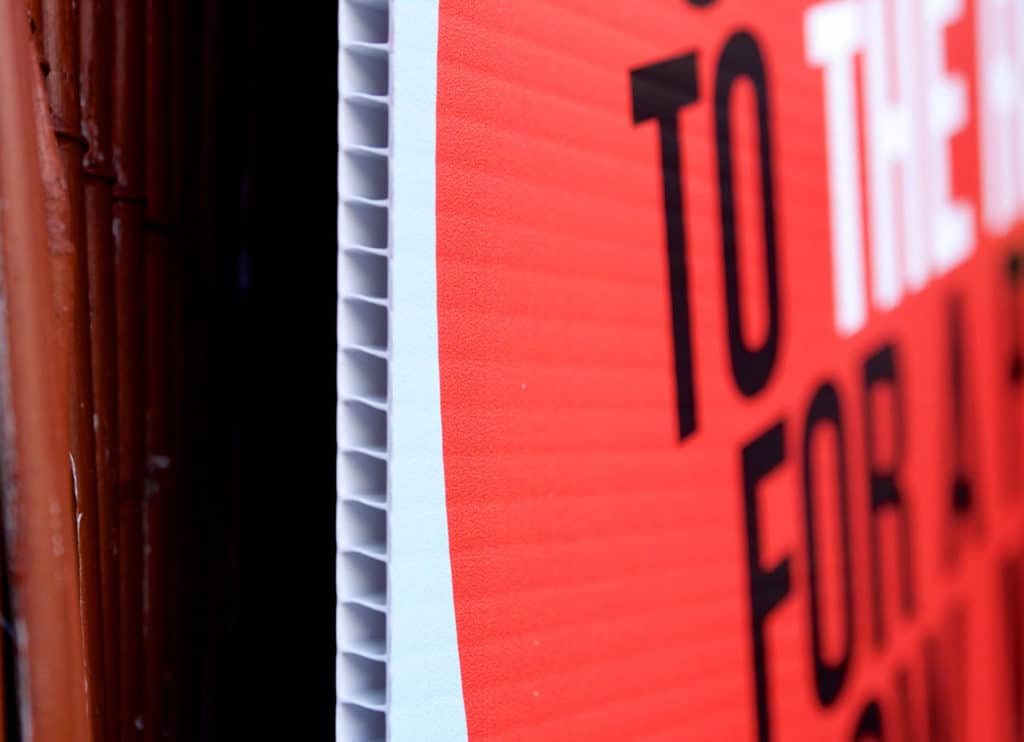
How is Ecoboard more sustainable than Corflute?
Unlike coreflute, EcoBoard is recyclable and biodegradable. Put simply, if it’s not recycled first, EcoBoard can be broken down rapidly by microorganisms and therefore, doesn’t stay in our environment for thousands of years like other plastic materials. EcoBoard is also recyclable, giving our clients more options when it comes to the discarding of their signage.
While EcoBoard can eventually be broken down, corflute is not biodegradable. It will remain on earth in some way or another once produced. Though not biodegradable, Coreflute can be recycled through our program with TerraCycle, the global leader in recycling the unrecyclable. TerraCycle collects hard-to-recycle materials and sorts, processes and transforms waste, ensuring it doesn’t reach landfill but is instead repurposed into something else. This diverts millions of kilograms of resources, including signage, from landfills all over the world. In this case, although it will never break down and thus be classified as biodegradable, corflute can be recycled and repurposed into something else.
In summary, EcoBoard can be recycled through our TerraCycle program and it is also biodegradable. A wood-pulp core paired with a high-quality paper lining means it’s not harmful to the earth and thanks to its organic and chemical-free nature, it can be thrown in the green recycling bin. Yes, alongside your food scraps, garden waste and other organic matter! Coreflute can be recycled through our TerraCycle program but it is not biodegradable. So don’t throw it in the green recycling bin, please!
Using Ecoboard as a Corflute alternative
These products are quite similar in the way they can be used and are therefore fairly interchangeable. Coreflute does have, however, slightly more durability and is often a better alternative for outdoors.
When making the decision between EcoBoard and coreflute, consider the nature of the signage; where you’re going to place it? How are you going to place it? Is it a long-term or short-term signage solution? These are all considerations that must be made prior to ordering your signage. If you require assistance deciding on a material, you can contact the team at Mesh Direct who are always here to assist by explaining each product and its best utility.
So, what should I use?
EcoBoard and corflute are both fantastic products and the choice is yours. If you know you’re going to be displaying your signage outdoors where it might be affected by the elements, opt for corflute. If you’re looking for a long-term signage solution, also opt for coreflute. On the other hand, if your signage will be displayed indoors for a shorter period of time, give EcoBoard a go. If a true biodegradable solution is more in line with the values of your business, EcoBoard is a winner.
We’ll finish with this: Assess your signage requirements, understand how durable it needs to be, weigh up the importance of biodegradability and you’ll reach a conclusion on what product to buy.

